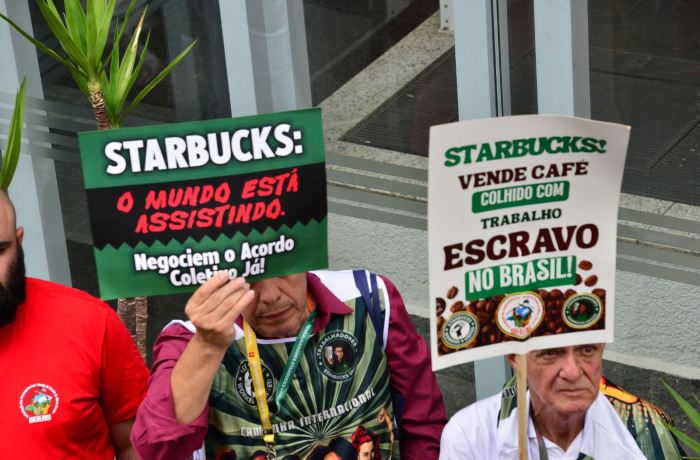Nineteen coffee harvest workers – who had migrated from Vale do Jequitinhonha, one of the poorest areas in the state of Minas Gerais – had almost one third of their wages illegally deducted by the family of the president of the world’s largest coffee cooperative, Cooxupé. The amount deducted was related to the purchase of machinery and fuel to be used in the harvest – which is not allowed by labour legislation.
Labour inspectors found the violation on July 14, during an inspection at the area where the workers were harvesting: the Pedreira Farm in Cabo Verde (southern Minas Gerais), which belongs to the family of Carlos Augusto Rodrigues de Melo, president of the cooperative since 2019. After the violation notification, the farm owners signed an agreement with the Labour Prosecution Service and the Public Defender’s Office to return the money wrongly deducted and pay each worker R$ 2,000 as compensation for moral damages.
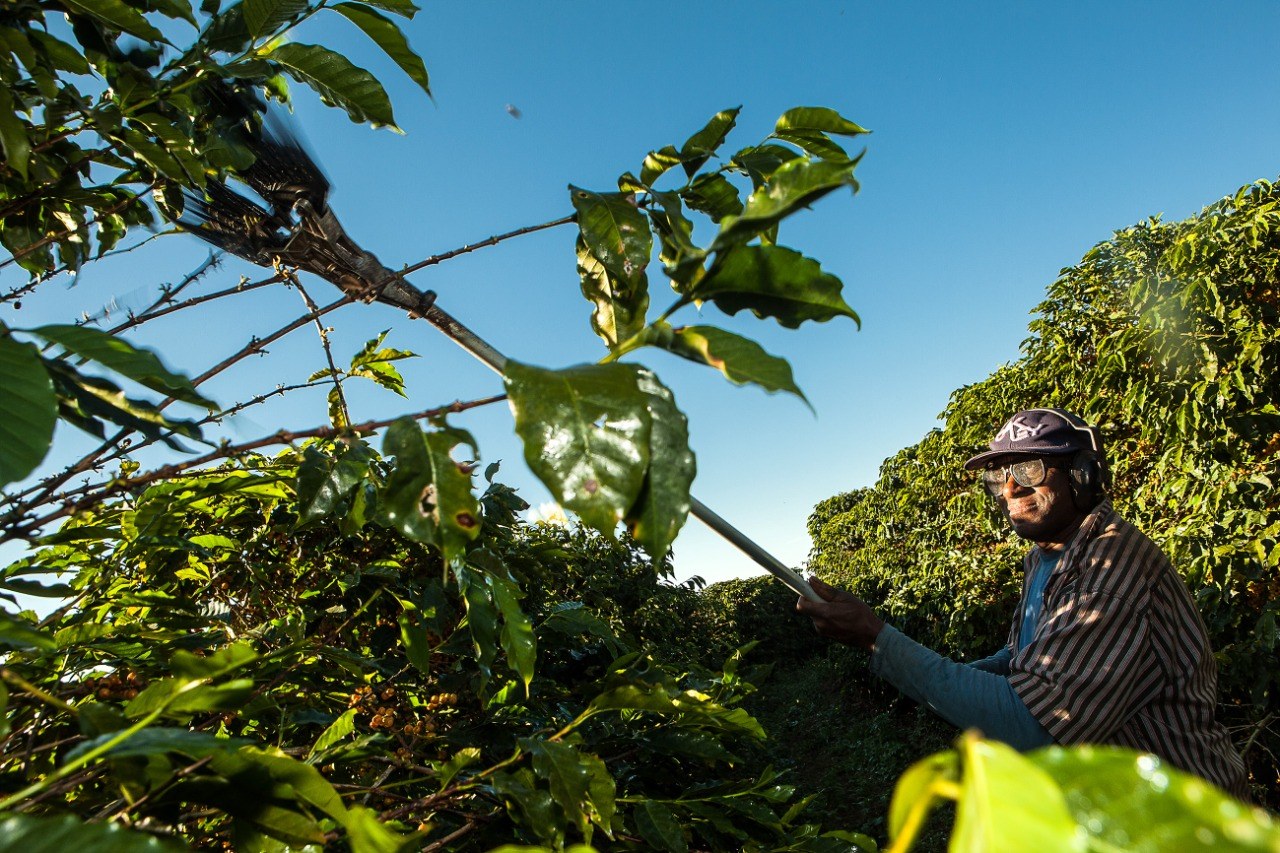
Last year, in the midst of the coronavirus pandemic, Cooxupé members doubled their revenues – from R$ 160 million in 2019 to R$ 306 million. The cooperative made record profits in 2020, reaching R$ 5 billion, an increase of almost 20% compared to the R$ 4.2 billion in 2019. Nevertheless, the workers at Cooxupé’s president’s farm had R$ 500 deducted every two weeks from their payments, which vary between R$ 3,400 and R$ 4,000 a month.
The operation was carried out by members of the, the Labour Prosecution Service, the Public Defender’s Office and Federal Highway Police. Agents found that discounts were applied to all workers’ wages during harvest season, which began in May.
Currently, Cooxupé has 14,500 members and sells coffee to major international brands such as Nespresso and Starbucks.
It holds several certifications, including Rainforest Alliance. When contacted, the certifier stated that the Melo family’s Pedreira Farm had been suspended from its program until an audit is conducted. The suspension also applies to the UTZ certification, which merged with Rainforest Alliance in 2018 (Read UTZ’s full statement here).
Nespresso informed Repórter Brasil that it is in contact with the cooperative to “understand the developments of the case.” The company also stated that the Pedreira farm is not among its suppliers. (Read Nespresso’s full statement here). However, about 720 farms linked to the cooperative are certified by Nestlé to sell coffee to Nespresso. Cooxupé sold 65,983 bags to the Swiss brand only in the first quarter of 2021.
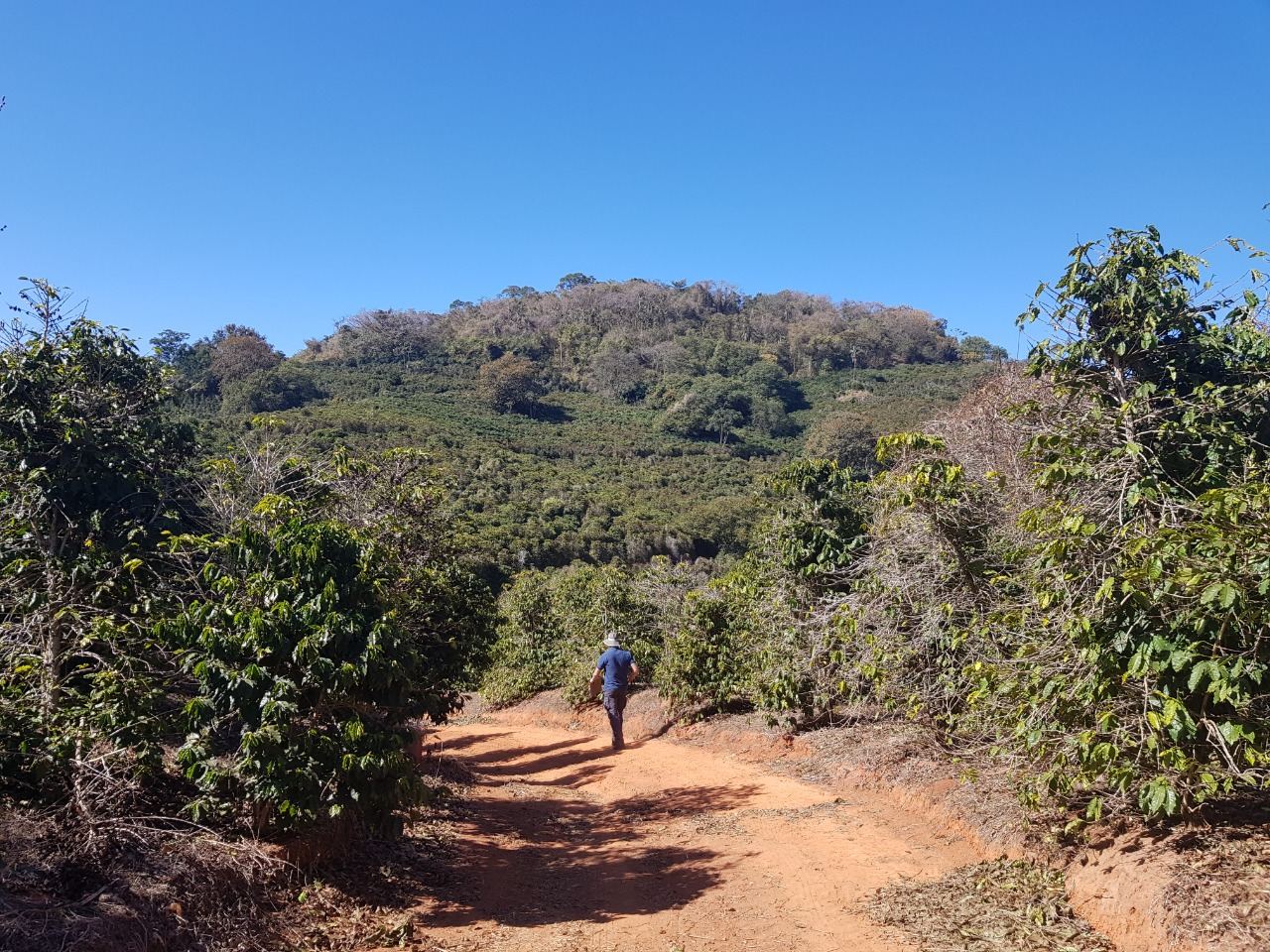
The cooperative is also certified by the program of another multinational giant, Starbucks. “We take such allegations extremely seriously and demand that all of our suppliers commit to complying with our Supplier Code of Conduct,” the company said in a note (Read Cooxupé’s full statement here). More than 2,000 Cooxupé member farms supply Starbucks, which, when questioned, did not answer whether it will take any action against the violation committed on the cooperative’s president’s farm.
Starbucks’s and Nespresso’s certification programs have already proved to be flawed in other opportunities, since slave labour has been found in farms supplying both brands and the companies only took a stand after being approached by Repórter Brasil. Good practice certifications serve as references for large buyers and, in theory, should attest that the product complies with labour and environmental legislation. However, Repórter Brasil’s report Certified Coffee, Rightless Workers has already pointed out several flaws in these quality seals.
Contacted by Repórter Brasil, Cooxupé’s press office said that Melo will not comment on labour violations found on his family’s property. In a statement, they said that the Melo family signed a Conducted Adjustment Agreement for “implementing improvements.” He also said that the cooperative “complies with labour legislation” and that “certified rural properties meet the requirements set out in the certifiers’ regulations.”
Melo declined to be interviewed, but in April, while commenting on Cooxupé’s record sales, he told newspaper Folha de São Paulo: “It’s a paradox: the pandemic was causing so much trouble, too much concern, but we managed [to have such good result] after one year with high quantity and quality. This has leveraged the cooperative.”
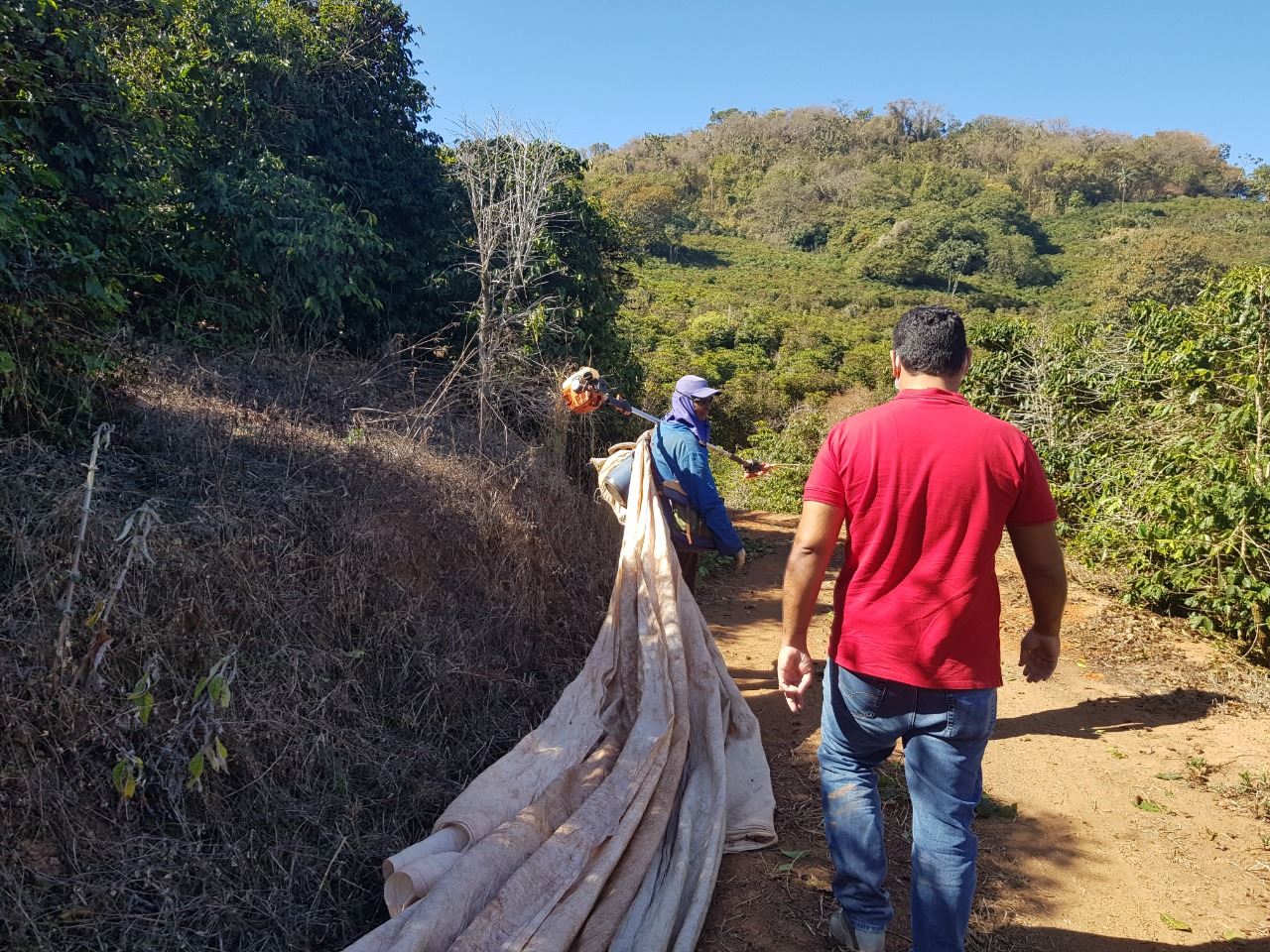
While coffee production and exports hit record levels, 140 workers were rescued from slave-like labour in Brazil’s coffee plantations only in 2020 – all in Minas Gerais, according to data from the Subsecretariat of Labour Inspection (SIT).
Irregular manoeuvre
Labour inspectors found that farm owners manoeuvred not to pay for equipment that is essential to harvest coffee and not to provide it to workers for free, as required by law.
The money deducted from seasonal workers’ wages was supposed to pay for portable harvesting machines known as derriçadeiras, which pull coffee tree branches to take the beans and are used individually by each employee. The farm used to deduct R$ 500 per month from workers for the purchase of those machines, in addition to around R$ 500 more for fuel (used in the same harvester).
However, the machines would not belong to workers until they paid off their full cost – around R$ 2,700 — which they could not do in one harvest. That is because the coffee harvest usually lasts between four and five months. At R$ 500 per month, the workers would have paid about R$ 2,500 at the end of the harvest season for their harvesters — not enough to take them home.
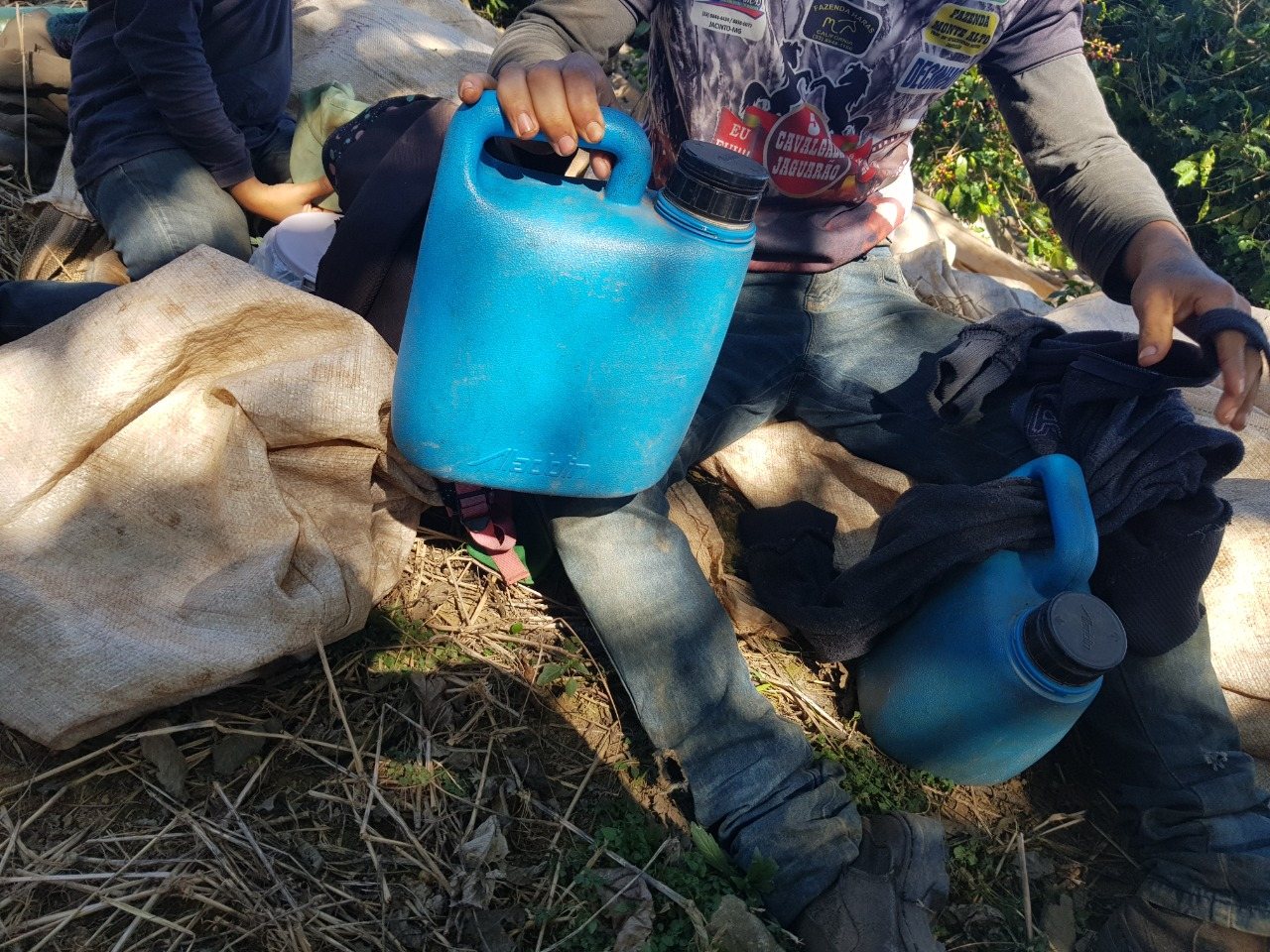
Under the farm owners’ proposal, if the machines were not fully paid off by the end of the harvest, they would stay on the farm. If workers returned the next harvest, they could use them again, on the same property.
A Brazilian rule governing rural labour (NR-31) determines that employers must provide work tools to their employees free of charge, which includes fuel used in the machines, according to a labour inspector heard by Repórter Brasil.
“Employers must provide work equipment. When employers make this abusive discount from wages, they reduce workers’ earnings,” says the head of the Coordination of Rural Employees of the State of Minas Gerais (Adere), Jorge Ferreira dos Santos, who is also a member of the state board of labour federation CUT.
“Farm owners’ logic is to profit as much as they can from the highest precariousness possible,” the union leader says. Ferreira explains that charging workers to use harvesting machines is illegal, but it is becoming common in southern Minas Gerais.
Deductions have a huge impact on seasonal workers, Ferreira says. That is because what they earn during harvest months is often all they will get throughout the year. “They take it home and support their families until the next harvest,” he explains.
Most coffee workers have migrated from the Jequitinhonha Valley and northern Minas Gerais, in addition to some states in Brazil’s Northeast, especially Bahia. Of the 32 workers found at the Pedreira Farm, 23 came from Santa Maria do Salto, in the Jequitinhonha Valley (MG).
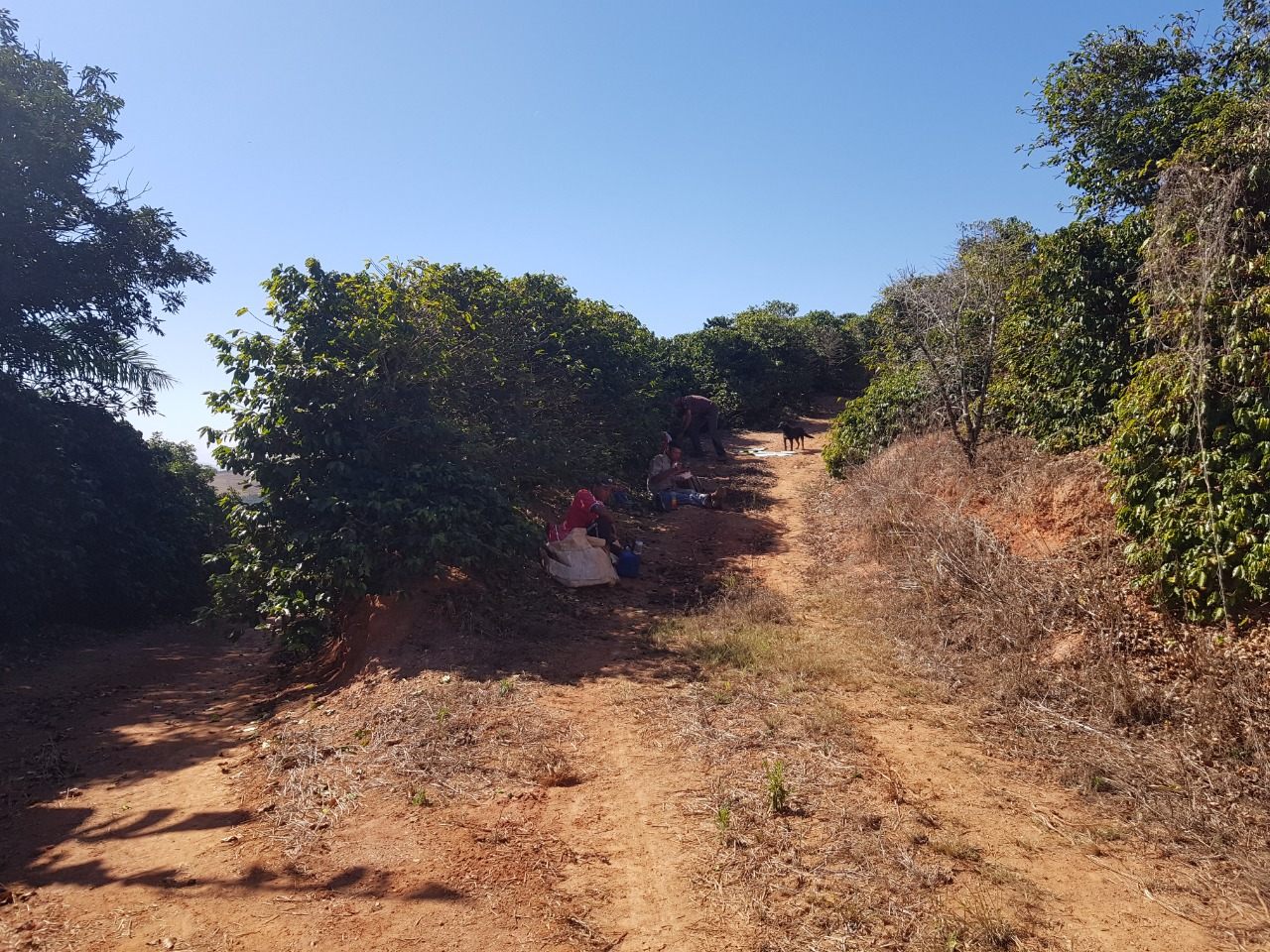
The person in charge of the Pedreira farm is Cooxupé’s president’s daughter Kátia Cristina de Paula Melo. Labour inspectors found that coffee production on the property benefits the family, which includes her parents. In addition, the parents are listed in the documents as having the right to “lifetime usufruct” over the property, despite the farm being registered to Kátia and a brother.
Kátia’s mother Maria de Fátima Fonseca de Paula e Melo went to the Regional Labour Department in Poços de Caldas (MG) a week after the operation and pledged to comply with 14 measures, in addition to returning the money deducted and paying for moral damages: improving transportation for workers; not making deductions from wages that are not cover by law or collective bargaining agreements; providing places for workers to have their meals and toilets at work fronts; providing working tools free of charge and lockers at the accommodations.
If they fail to comply with those obligations, the family of Cooxupé’s president will be fined R$ 10,000 per item plus R$ 1,000 for each worker affected.
* André Campos contributed.
